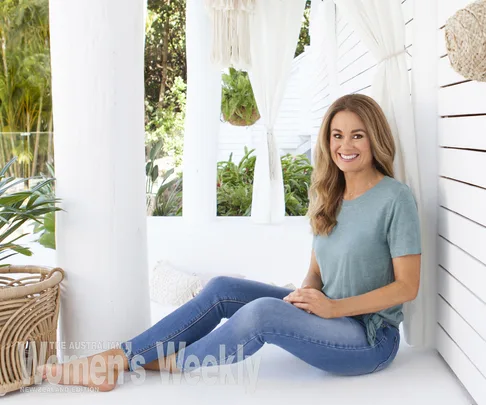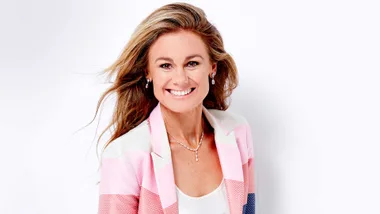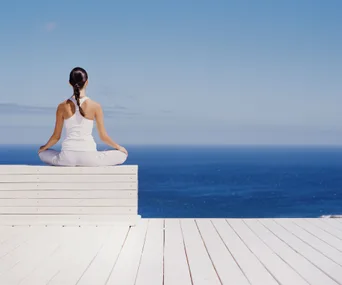Dr Libby Weaver is an emotional creature when it comes to her life’s work. “I don’t always blubber,” she laughs. “But my eyes well with tears very regularly.”
If you were to look at the fields she works in, you might think to yourself: food, hormones, and now beauty… where’s the heart pull in that? But each of these topics comes with a lot of emotional baggage that we only start to appreciate when something goes wrong.
Food starts to react badly with you, you start to notice the signs of ageing in your face, your mood swings make you feel like your brain is rented out part-time to a crazy person.
Suddenly, these simple words become gateways to very loaded conversations. And for her ever-increasing audience, Libby has become the bridge between the general world of women’s wellness and the complex biochemistry behind it.
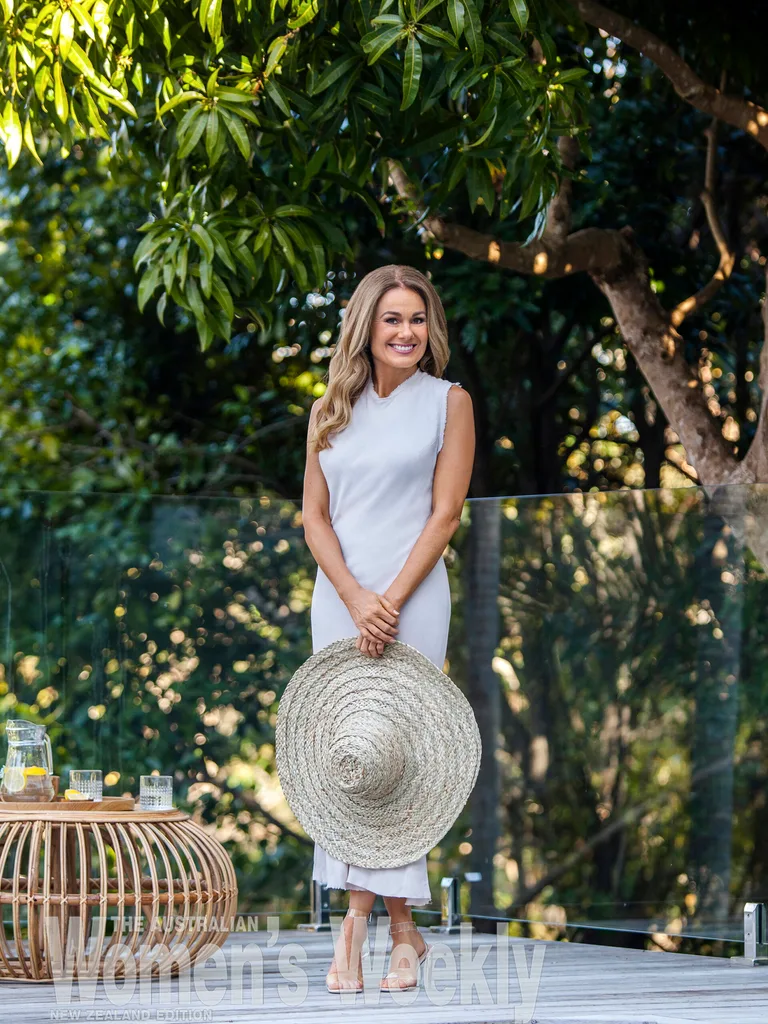
Talking to The Australian Women’s Weekly from sunny Burleigh Heads, it’s been another beautiful day in paradise. The tail-end of winter means nothing in Queensland. On the day of our cover shoot, it’s exactly as you would imagine: 22 degrees and not a cloud in the sky.
Libby, 43, has only been back home for a matter of days after returning from a speaking gig in Texas. She travels for about 120 days of the year, doing two or three gigs in each location. Kind of like a rock star, but with a very different lifestyle, you would imagine.
She laughs a lot at this. “I book my accommodation based on where I want to eat and access to nutritious food – rock stars probably don’t have that on their mind!” But if there was such a thing as a rock star of wellness, Libby would be it.
Her gigs may be more sedate affairs than your average concert – women sitting quietly, clutching her books and listening avidly to facts about digestion – but they are still sell-outs. Even her name has become synonymous with all things wellbeing. She is something of a “women whisperer”.
As both our stress levels and health awareness rise, it is Libby who is able to shine a light on the complex, often contradictory world of women’s health. She can still remember the moment she realised she had a knack for this kind of doctor-to-civilian translation.
It was while she was working on her PhD, about the biochemical and nutritional factors that impact autistic children. At the end of every year, the Newcastle University PhD students had to present their research to the heads of department. So Libby – who is 100 per cent the kind of person you can imagine was a hyper-organised, Grade A student – got up and presented her findings.
But then, a curve ball. “One of the professors said, ‘Now, I want you to deliver exactly what you’ve just said as if you were on the news,'” Libby recalls.
“I had no preparation – I just had to stand there and present everything I’ve done in real layman’s terms. And that experience showed me that I could do that, and it also taught me firsthand the value of being able to do so. Because if all of this great research happens and there’s so much incredible science happening around the world, if someone who’s not a scientist can’t access that information, it’s wasted.”
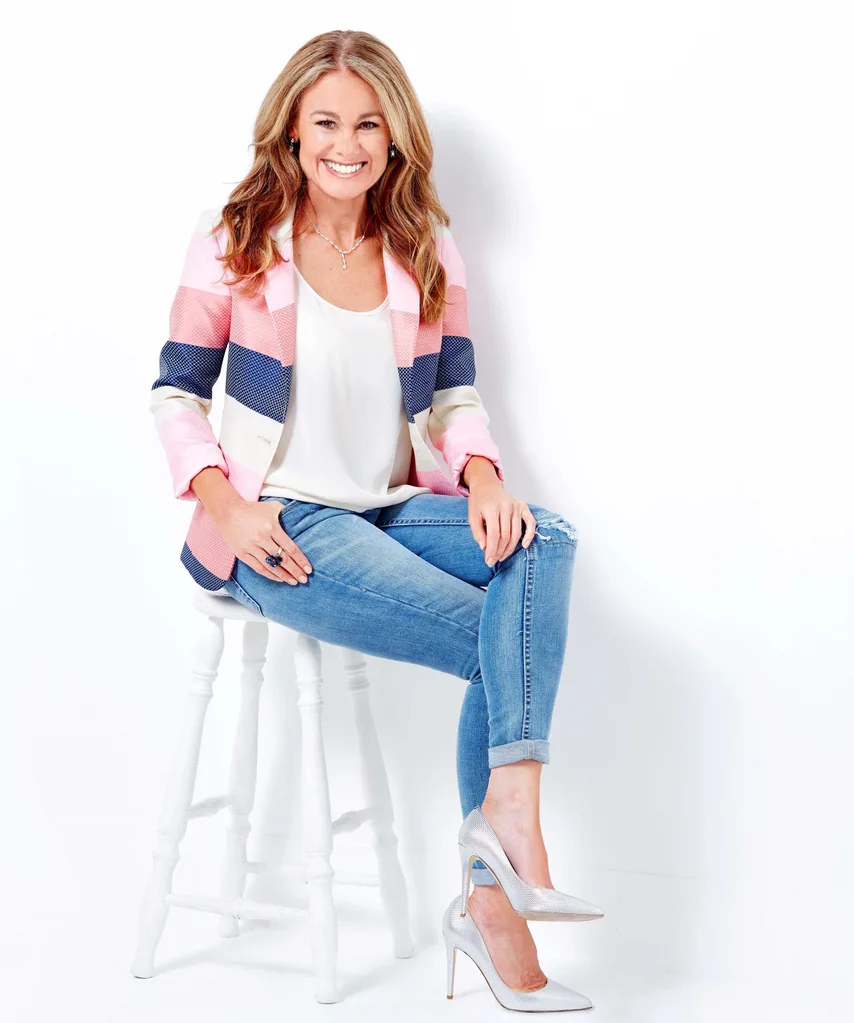
This is part of the dichotomy behind Dr Libby: as a person, she is a very private, self-described introvert. But as a spokesperson for a very successful global brand, she is everywhere. For a long time, Libby ran her own clinic and changed people’s lives one appointment at a time.
But with the 2011 release of her book Accidentally Overweight, the work started to take on a life of its own. Was this her plan?
“No,” she laughs. “The only thing I really ever knew was that I would write a book, because I’ve always loved writing.”
But the ever-growing platform doesn’t intimidate her; to the contrary, she relishes the chance to communicate with a wider audience.
“I just want to wake people up to be able to take better care of themselves. I love it, and I do it because I feel like it’s how I say thank you that I got the gift of life. I don’t pay lip service to this; I honestly live each day in touch with how precious all of this is. That’s why I do my work: to give thanks.”
That sense of purpose is what has fuelled her, despite the ups and downs of a life led relatively publicly.
“It is a great gift to be able to live what I feel I was put here to do.”
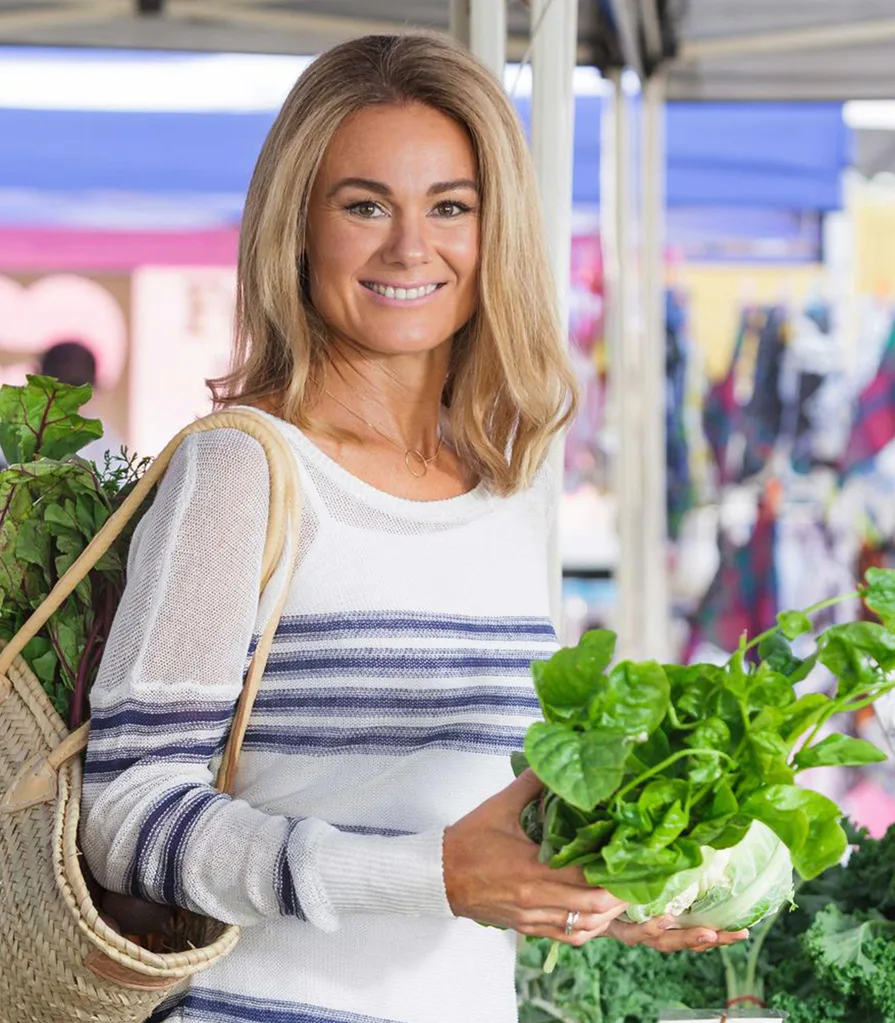
Her touring schedule is intense, to put it mildly. This year alone, she toured America, the UK and Germany and from mid-August onwards, she has 26 stops around New Zealand and Australia, talking about women’s hormones.
There’s a tight Dr Libby team that travels with her, including the company’s CEO Chris Weaver, who also happens to be Libby’s ex-husband – the two have navigated their 2016 split with their friendship very much intact. In November, they’ll be running the immersive 20-hour Essential Women’s Health weekend, where smaller groups of women get as close to one-on-one time with Libby as possible.
It was during one of those weekends when the spark of an idea for Libby’s latest book, The Beauty Guide: Your body, biochemistry and beliefs, began. As part of the weekend, Libby leads a discussion on sex hormones, and how they influence a female’s journey from puberty through to menopause.
It’s one of the sessions that hits home the most, Libby says.
“There’s usually not a dry eye in the house by the end of it. A lot of women don’t understand their own bodies and a lot of them suffer with their reproductive system, and for many, it begins when they’re a teenager.”
At the end of this particular weekend retreat, a woman stood up and asked Libby when she was going to write a book for teenage girls.
“The whole room stood up and clapped me, and I started crying, of course” – she breaks off into a chuckle, but it’s clearly still a moment that sticks with her.
“I could really feel the need from the women in the room – whether they were mothers or had nieces or friends, or just for themselves. They wanted a new way to communicate with themselves and the people they loved – to appreciate who they were.”
Libby is aware that, in comparison to other topics she’s written about, beauty can seem like, well, kind of fluffy – “that’s why I put the tagline ‘your body, biochemistry and beliefs’ to try and ground it a bit” – but she believes it’s a topic worth discussing because beauty is rooted in how we feel about ourselves.
“Women of all ages need to be reminded of their own self-worth, and then they need the skills and tools to talk to younger women in their life, so they don’t go down the same pathways. Our self-worth changes along the way with every choice we make: the foods you choose, who you socialise with, the jobs you apply for, the friends you make. How we see ourselves impacts everything.”
Peel away the layers of a lot of our problems, Libby believes, and you’ll find the same conclusion.
“[Women’s] questions, to begin with, are usually around where they feel they’re suffering the most: they might not be sleeping properly, they might have lousy energy, their clothes might be getting tighter and tighter, they can’t conceive, they might be suffering debilitating menopause. Often there are choices that we address in those scenarios. But then eventually the conversation stems back to how they see themselves. Because we wouldn’t make half the choices that we make if we were really in touch and in awe with ourselves. That’s not meant with any kind of conceit, but it’s the knowing in your heart that you’re meant to be here on the planet, and that you’re important and have something to contribute. When you’re more in touch with that, I do think it changes everything.”
The Three Lenses
In The Beauty Guide, there’s a line from Libby about the three lenses that form the pillar of her work and the way she examines everything: biochemical, nutritional, and emotional. Early on in her career, she learned that each factor can play an equally important part in our overall health.
Clients would come in to see her and she’d give them an action plan. They’d come back six weeks later, and they wouldn’t have done it. The pattern repeated, time after time.
“They’d feel awful about themselves and it would break my heart because I’d think here are these intelligent people, who have paid money and given up time for this consultation – both of which are precious. It’s not like they’re willingly burning their time or money by not doing what a professional has suggested. But they just couldn’t do it. And that’s where my question came in: why do people do what they do, even though they know what they know?”
So many of us make choices that damage us, in one way or another, even though we know we shouldn’t. How many times have we eaten the wrong thing, drunk the extra glass of wine, stayed up too late, caught up with that toxic friend, even though we know what the end result will be?
“In nearly every case, it comes back to a perceived loss of love,” says Libby. “The fear that they won’t be loved or that they’re not loved. On the surface, you can’t see it – but it’s often behind it all. It’s behind all my books. The biochemistry has to be addressed – if you’re churning out stress hormones, we have to look at that. If you’re not eating nutritional food, you’re not getting the requirements you need. But the third pillar [emotional] is the big kahuna: you won’t be able to make nourishing choices if you don’t think you’re worth taking care of. And that’s the ultimate message in the book, to help get people back in touch with that.”
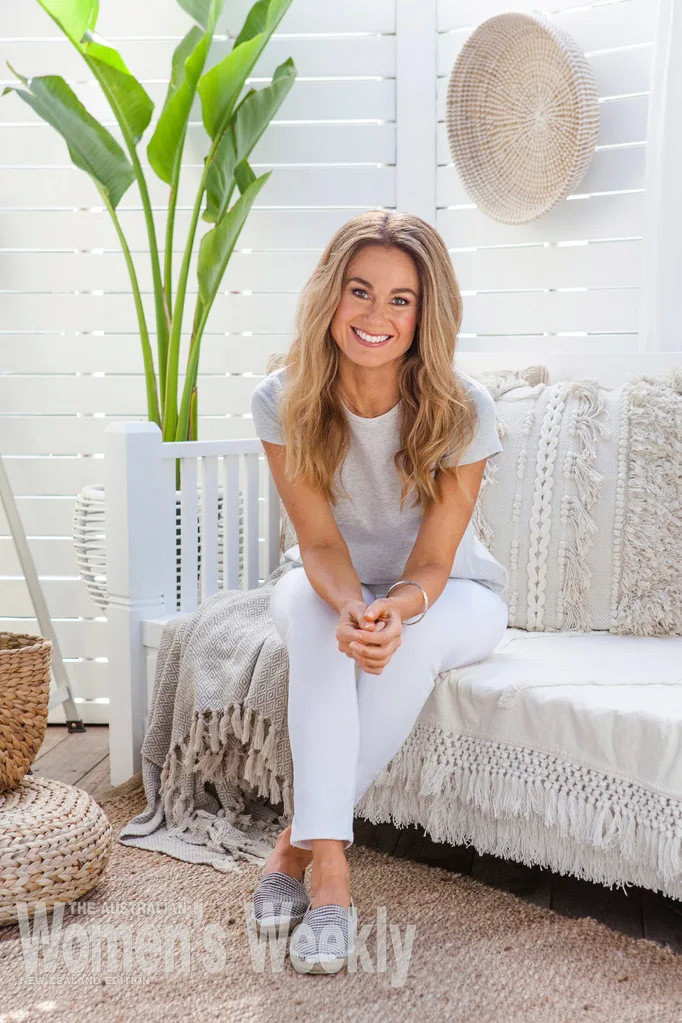
Culture of comparison
The book also delves into the “culture of comparison” we live in, aka the world of social media. When someone asks Libby to help them, she’ll often begin by asking what stresses them out.
For many younger women, the answer is social media. The reason, Libby believes, is because one of our core worries is what people think of us – and a wider social circle means a wider circle of perceived judgement.
“Not that long ago, we would have worried about what maybe five or 10 people thought of us,” she says. “Growing up, I would have worried about what my parents thought of me, what my best friend thought, perhaps a teacher who was really excellent, and my tennis coach. Whereas now, people worry about all of that plus what relative strangers think of them because they’re exposing themselves to people they don’t know.”
But it’s not just young people who feel self-conscious. The ageing process draws insecurities from us all and Libby says she can see the worry about it starting younger and younger.
A large part of the reason for that is stress, which fuels so many of the symptoms. Take the weight gain that comes with menopause. A lot of women assume it’s normal, she says, but it doesn’t have to be.
“When we’re menstruating, we make sex hormones through our ovaries, our adrenal glands and then our body fat produces oestrogen. In menopause, the ovarian production of hormones ceases, but the body is still supposed to make oestrogen and progesterone from our adrenal glands, and oestrogen from our body fat.”
Stress, however, has become a game changer, thanks to the intense pace a lot of us live. A stressed body means the adrenal glands are churning out stress hormones as a priority over sex hormones, often for years or sometimes decades.
“When you go into menopause, your ovaries stop making sex hormones. But then you don’t have your adrenal glands to rely on, because with all of the stress you may not have made sex hormones from the adrenals for years or even decades. So then the body fat has to increase to give the women even just a small amount of oestrogen; that’s one of the most common reasons that body fat goes up around menopause.”
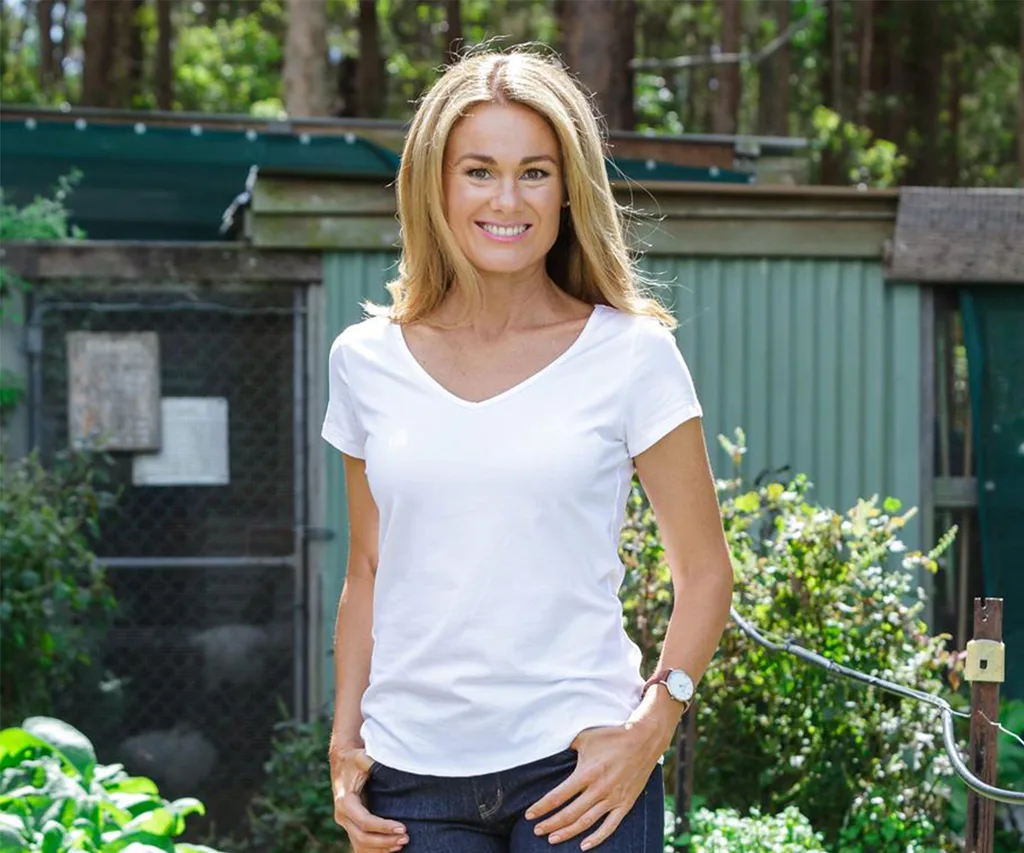
This is why one of Libby’s main messages for years has been helping women both deal with and reframe stress in their lives. “A lot of women feel they age very rapidly across those years, so all the basic things become very important: sleeping well, eating nourishing food, supporting their adrenal glands and their liver.”
It’s those in their 60s and 70s who often need the most help when it comes to taking care of themselves. The “self-care” movement, which is widely embraced these days by those in their 20s and 30s, can seem foreign to a generation that sees things like massage as a luxury, rather than a helpful health tool.
“It’s almost like their perception is that doing this for themselves is unnecessary, and just a whole lot of fuss that is not appealing to them, because they’re so used to putting other people’s needs ahead of their own,” Libby explains. “My concern is that I don’t want it to be a health crisis that wakes them up to the things our generation has learned, which is that without our health we have nothing, and therefore we need to look after ourselves.”
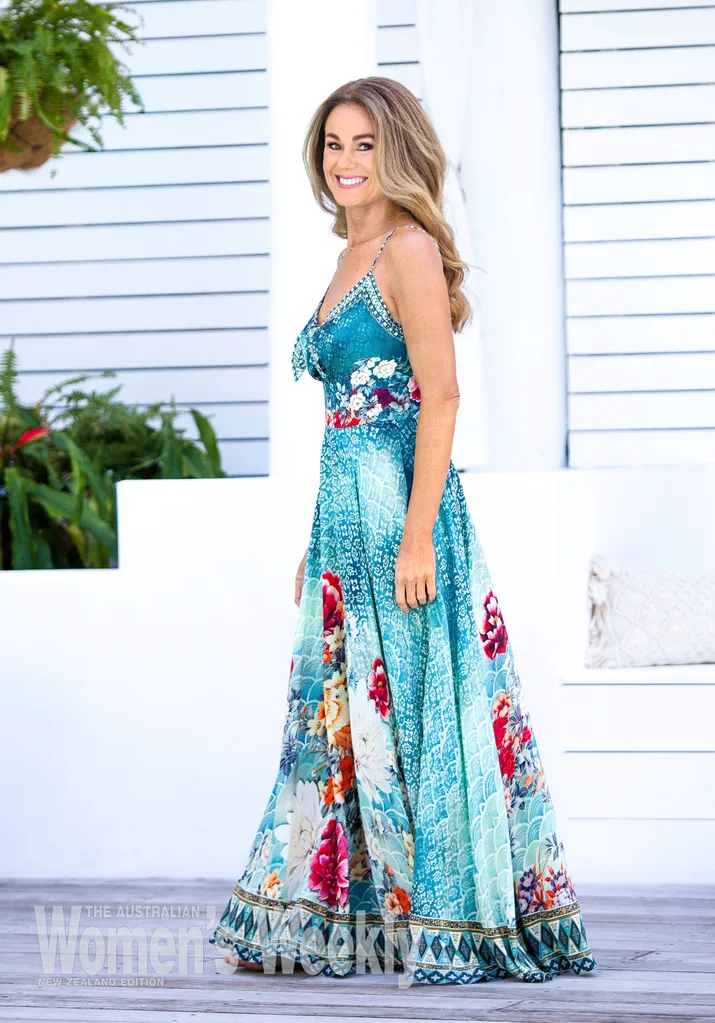
Find the joy
If you go to one of Libby’s seminars, or read one of her books, you’ll come across one of her favourite lines: “Let yourself have what you already have.” It is a simple aim, she says, but one that often falls by the wayside.
“A lot of people are forever striving. They want to improve their lives – and lots of great things can come from that – but I worry that sometimes we miss what’s already here. When you talk to people who are dying, and they tell you what they’re going to miss the most, they say the most ordinary things: patting their cat, seeing the sunrise, looking at the night sky. We have all of that now – and I think having what we have now is a big part of joy. Joy is a massive part of our energy. Joy has a huge ripple effect in the world. So that’s what I mean by that statement: it helps you notice a lot more of the beauty around you.”
